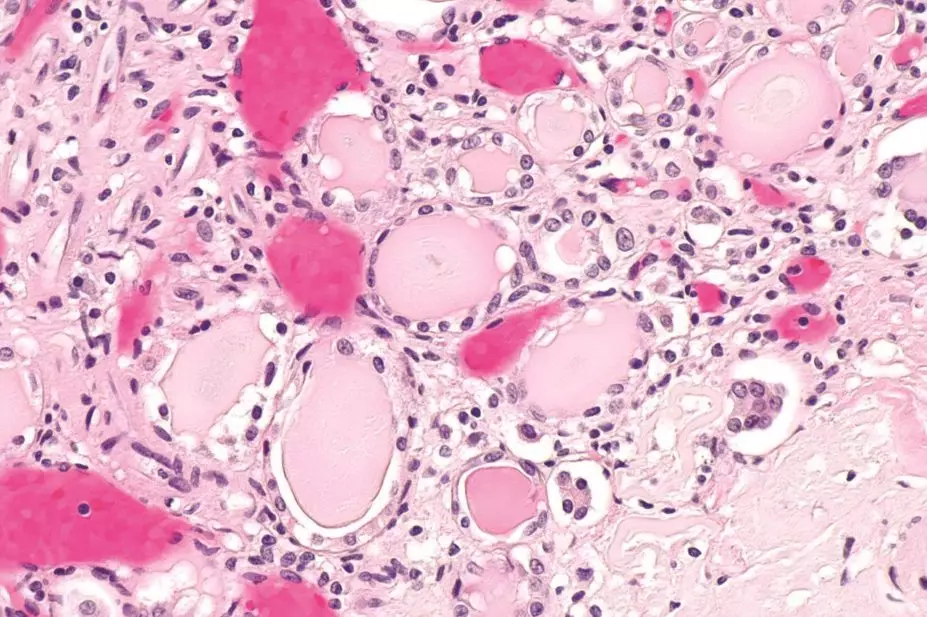
Wikimedia Commons
The US Food and Drug Administration (FDA) has approved a new drug to treat potentially fatal levels of potassium in patients with chronic kidney disease.
Alongside approval, the FDA has called for the addition of a boxed warning stating that the drug must be taken at least six hours apart from other oral drugs.
Veltassa (patiromer for oral suspension), manufactured by biopharmaceutical company Relypsa, based in Redwood City, California, is a polymer that binds potassium in the gastrointestinal tract, thereby decreasing its absorption.
“Too much potassium in the blood can lead to dangerous, even fatal, changes in heart rhythm,” says Norman Stockbridge, director of the division of cardiovascular and renal products in the FDA’s Center for Drug Evaluation and Research. “It is important to have treatment options for hyperkalemia available to patients.”
“[Veltassa] will have a major impact on anyone with chronic kidney disease, including those with heart failure and diabetes,” says George Bakris, director of the Comprehensive Hypertension Center at the University of Chicago Medicine, Illinois.
These patients have problems with elevated potassium levels secondary to medications, proven not only to reduce kidney disease progression and mortality, but also to reduce the need for dialysis, that is, ACE inhibitors or angiotensin receptor blockers.
“We now have a predictable and reliable method for controlling and reducing serum potassium levels with patiromer,” says Bakris, who served as the national principal investigator on a clinical trial investigating the drug[1]
. “Its once-daily usage will enable people to take this life saving class of medication.”
The randomised clinical trial that Bakris ran, AMETHYST-DN, generated data on the long-term safety and efficacy of the compound. As a result, Veltassa’s packaging must include a boxed warning because it was found to bind many other orally administered drugs, which could decrease the absorption of those drugs and reduce their effectiveness.
The warning recommends taking the medicine and any other orally taken drugs at least six hours apart. The drug must be dispensed with a patient medication guide that describes important information about its uses and risks.
There was a low incidence of adverse events recorded during the trial — constipation was the only real problem, according to Bakris, and was only seen in around one in nine patients.
The finding that Veltassa binds to other orally administered drugs has prompted the FDA to check that the current standard of care for decreasing serum potassium levels, Kayexalate, does not also bind other medications. Kayexalate is a sodium polystyrene sulfonate.
Kayexalate costs much less than Veltassa, which gives it an advantage even though it is less effective. If it turns out to bind other drugs and reduce their effectiveness in the same way as Veltassa, the FDA would require all manufacturers of sodium polystyrene sulfonate products to update the drug labels to include information about these drug interactions.
Cowen and Co analyst Cristina Ghenoiu said ahead of the FDA’s announcement that Veltassa could achieve blockbuster status by generating US$1bn in peak annual sales, reports Reuters.
ZS Pharma has a competing drug (SS-9) awaiting FDA approval. Analysts at Morgan Stanley, quoted in the online news service FierceBiotech, predict that ZS-9 will have a significant commercial advantage if the product does not require a boxed warning.
Veltassa is expected to be available to patients in the United States in January 2016. Relypsa did not comment on when the company plans to file for EU approval.
References
[1] Bakris GL, Pitt B,Weir MR et al. Effect of patiromer on serum potassium level in patients with hyperkalemia and diabetic kidney disease: the AMETHYST-DN randomized clinical trial. JAMA 2015;314(2):151–161. doi:10.1001/jama.2015.7446


